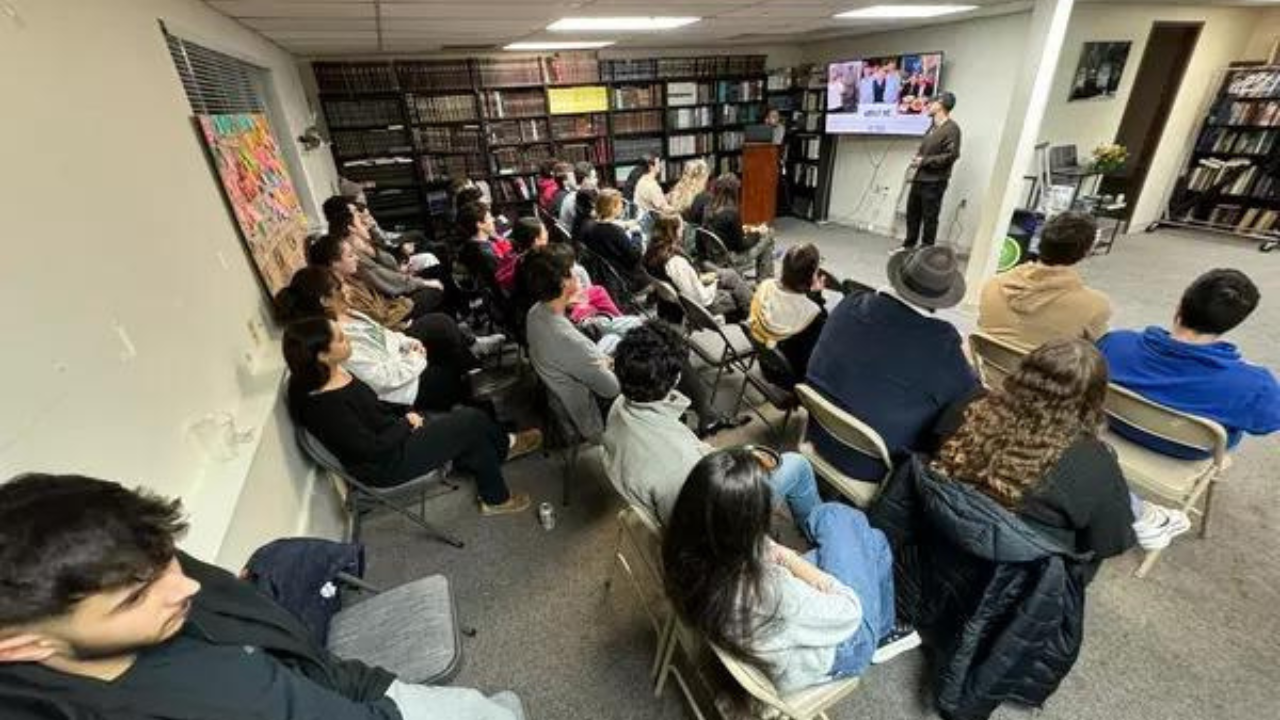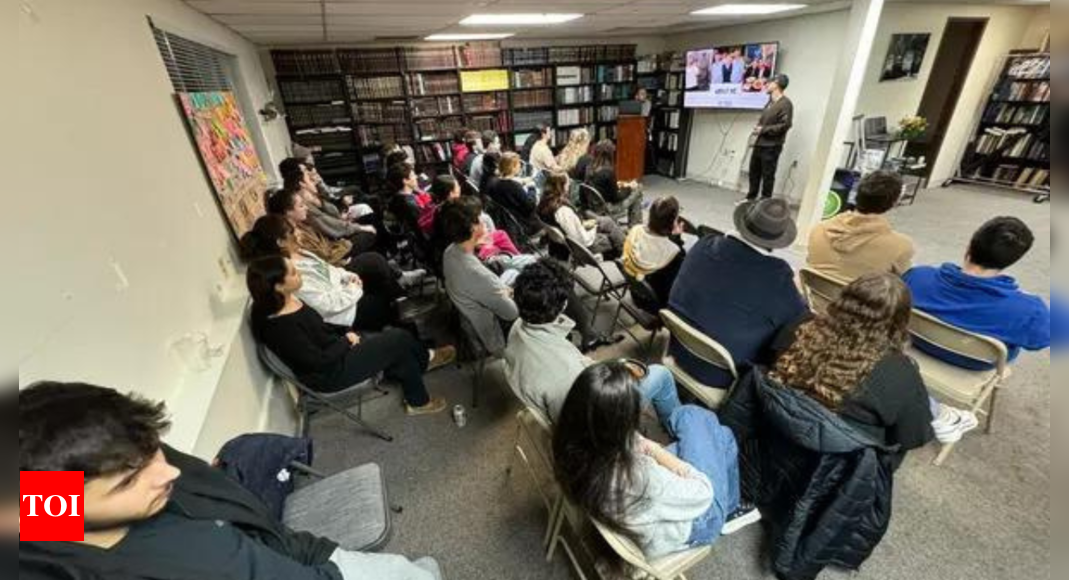
WASHINGTON: The latest battle in the culture wars cleaving American society centers around diversity programs on university campuses, now restricted or banned in a growing number of US states.
The debate pits those on the left, who advocate for boosting minority students victimized by deep-rooted inequality, and those on the right who say people should be judged on individual merit, not skin color.
“The idea of present discrimination being the remedy for past discrimination… is inherently wrong,” said Jordan Pace, a Republican member of the House of Representatives in the state of South Carolina.
“We don’t like the idea of judging people based on immutable characteristics, whether it be gender or race or height or whatever,” he said, calling the United States a “hyper-meritocratic society.”
Often known as “diversity, equity, and inclusion” (DEI) programs, many American universities had given special consideration to minority students – particularly those who are Black, Hispanic and Native American – as they sought to correct long-standing inequalities.
Last June, the country’s conservative-majority Supreme Court put an end to affirmative action in university admissions, reversing one of the major gains of the Civil Rights Movement of the 1960s.
Now, Pace is urging his state to follow the lead of Florida and about a dozen other states that have scrapped campus DEI programs.
‘Get rid of us’
“The primary target group across the country… are Black people,” said Ricky Jones, professor of pan-African studies at the University of Louisville in Kentucky.
Carlie Reeves, 19, was the first person in her family to attend college and when she arrived at the University of Louisville, it was “very obvious that my professors didn’t really think I belonged. Didn’t really see me as intelligent.”
DEI leaders on campus “spoke life into me and told me… you have the merit.”
Many minority students are at the school “100 percent because of DEI,” she said, raising as an example Black students who benefitted from race-based scholarships.
But on March 15, Kentucky lawmakers advanced a proposal to restrict such programs, spurring Reeves to co-organize a protest on campus.
“It just felt like my duty to inform the students, ‘Hey y’all, these people are trying to literally get rid of us from campus… we have to do something,” she said.
Kentucky is following other conservative states, including Texas, Alabama and Idaho.
At the beginning of March, the University of Florida ended DEI programs and related jobs, part of Republican Governor Ron DeSantis’s offensive against what he calls “woke ideology.”
‘Very dangerous forgetting’
“I’m extremely worried,” said Stephanie Anne Shelton, a professor and director of diversity at University of Alabama’s College of Education.
While provisions in the state’s new law allow her to teach certain diversity awareness courses to future educators, she is concerned about “the degree to which concepts like academic freedom remain in place.”
In Alabama it is now prohibited to “compel a student… to personally affirm, adopt, or adhere to a divisive concept” — specifying that includes making an individual feel the need “to apologize on the basis of his or her race.”
Failure to comply can result in dismissal, the law notes.
Republicans routinely rail against “critical race theory,” an academic approach to studying ways in which racism infuses US legal systems and institutions in often subtle ways.
Republican White House candidate Donald Trump has called for making reforms on a federal level.
“On Day One I will sign a new executive order to cut federal funding for any school pushing critical race theory, transgender insanity, and other inappropriate racial, sexual or political content, onto our children,” he told a rally in Ohio.
Jones, the Louisville professor, said the new laws are “a rolling back of the racial clock locally, statewide and nationally.”
Going forward, Black scholars will avoid states like Florida and Texas, he said, predicting “a very, very dangerous forgetting that will happen here.”
The debate pits those on the left, who advocate for boosting minority students victimized by deep-rooted inequality, and those on the right who say people should be judged on individual merit, not skin color.
“The idea of present discrimination being the remedy for past discrimination… is inherently wrong,” said Jordan Pace, a Republican member of the House of Representatives in the state of South Carolina.
“We don’t like the idea of judging people based on immutable characteristics, whether it be gender or race or height or whatever,” he said, calling the United States a “hyper-meritocratic society.”
Often known as “diversity, equity, and inclusion” (DEI) programs, many American universities had given special consideration to minority students – particularly those who are Black, Hispanic and Native American – as they sought to correct long-standing inequalities.
Last June, the country’s conservative-majority Supreme Court put an end to affirmative action in university admissions, reversing one of the major gains of the Civil Rights Movement of the 1960s.
Now, Pace is urging his state to follow the lead of Florida and about a dozen other states that have scrapped campus DEI programs.
‘Get rid of us’
“The primary target group across the country… are Black people,” said Ricky Jones, professor of pan-African studies at the University of Louisville in Kentucky.
Carlie Reeves, 19, was the first person in her family to attend college and when she arrived at the University of Louisville, it was “very obvious that my professors didn’t really think I belonged. Didn’t really see me as intelligent.”
DEI leaders on campus “spoke life into me and told me… you have the merit.”
Many minority students are at the school “100 percent because of DEI,” she said, raising as an example Black students who benefitted from race-based scholarships.
But on March 15, Kentucky lawmakers advanced a proposal to restrict such programs, spurring Reeves to co-organize a protest on campus.
“It just felt like my duty to inform the students, ‘Hey y’all, these people are trying to literally get rid of us from campus… we have to do something,” she said.
Kentucky is following other conservative states, including Texas, Alabama and Idaho.
At the beginning of March, the University of Florida ended DEI programs and related jobs, part of Republican Governor Ron DeSantis’s offensive against what he calls “woke ideology.”
‘Very dangerous forgetting’
“I’m extremely worried,” said Stephanie Anne Shelton, a professor and director of diversity at University of Alabama’s College of Education.
While provisions in the state’s new law allow her to teach certain diversity awareness courses to future educators, she is concerned about “the degree to which concepts like academic freedom remain in place.”
In Alabama it is now prohibited to “compel a student… to personally affirm, adopt, or adhere to a divisive concept” — specifying that includes making an individual feel the need “to apologize on the basis of his or her race.”
Failure to comply can result in dismissal, the law notes.
Republicans routinely rail against “critical race theory,” an academic approach to studying ways in which racism infuses US legal systems and institutions in often subtle ways.
Republican White House candidate Donald Trump has called for making reforms on a federal level.
“On Day One I will sign a new executive order to cut federal funding for any school pushing critical race theory, transgender insanity, and other inappropriate racial, sexual or political content, onto our children,” he told a rally in Ohio.
Jones, the Louisville professor, said the new laws are “a rolling back of the racial clock locally, statewide and nationally.”
Going forward, Black scholars will avoid states like Florida and Texas, he said, predicting “a very, very dangerous forgetting that will happen here.”
Source link

